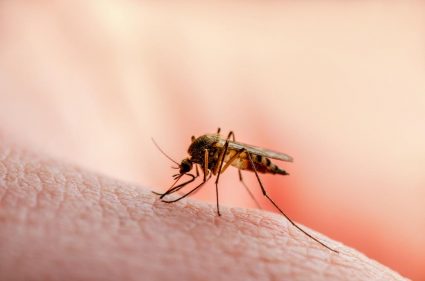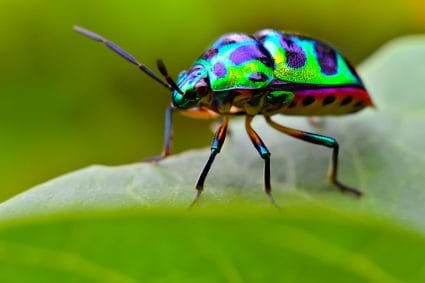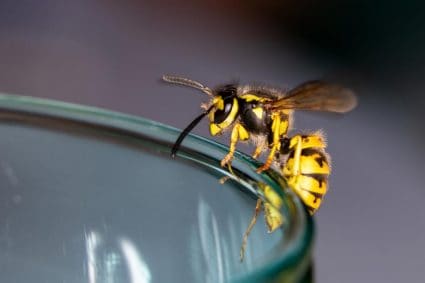
Mosquito bites are a common nuisance. For most people, they result in a small, itchy bump that disappears within a few days. However, for those allergic to mosquito bites, the reaction can be more severe and longer-lasting. This allergic reaction, sometimes referred to as “skeeter syndrome,” can result in a range of symptoms, from large areas of swelling and blistering rashes to low-grade fever and swollen lymph nodes.
If you’re allergic to mosquito bites, the bite may result in a large area of swelling at the site, potentially accompanied by blistering rashes, bruises, welts, a low-grade fever, and swollen lymph nodes. The reaction can be more severe and longer-lasting compared to a typical mosquito bite. In rare cases, it can cause anaphylaxis, a potentially life-threatening condition. If you suspect an allergic reaction to a mosquito bite, seek medical attention.
Identifying an Allergic Reaction to Mosquito Bites
For most people, a mosquito bite results in a small, red bump that itches for a few days. However, for those who are allergic, the reaction can be more severe. Symptoms of an allergic reaction to mosquito bites may include:
- Large areas of swelling at the bite site: This can occur within minutes or hours of the bite and can be significantly larger than the typical mosquito bite.
- Blistering rashes: Some individuals may develop blisters at the site of the bite or rashes on other areas of the body.
- Bruises: In severe cases, the swelling can cause bruising around the bite site.
- Welts: Raised, red welts may appear at the site of the bite.
- Low-grade fever: Individuals may experience a low-grade fever as their body reacts to the mosquito bite.
- Swollen lymph nodes: In some cases, the lymph nodes may swell as the body’s immune system responds to the bite.
In rare cases, an allergic reaction to a mosquito bite can cause anaphylaxis, a potentially life-threatening condition that requires immediate medical attention. Symptoms of anaphylaxis may include difficulty breathing, swelling of the tongue or throat, hives, and feeling faint.
Who is More Likely to Have a Mosquito Bite Allergy?
Certain individuals and groups are more prone to having an allergic reaction to mosquito bites. These include:
- Babies and children: They have lower immunity and are thus more likely to react severely to mosquito bites.
- Adults exposed to a new mosquito species: The proteins in mosquito saliva can differ from one species to another, triggering an allergic reaction in some people.
- People with allergies to mosquito saliva: Some individuals are allergic to the proteins and antimicrobial agents in mosquito saliva.
- Outdoor workers and travelers: These individuals may be exposed to a higher number of mosquito bites or encounter species they’ve never been in contact with before, increasing their risk of an allergic reaction.
Treatment Options for Allergic Reactions to Mosquito Bites
If you suspect you have an allergic reaction to a mosquito bite, it’s essential to contact your healthcare provider for a proper evaluation and treatment. Over-the-counter treatments, such as antihistamines and hydrocortisone cream, can help relieve itching and swelling. In severe cases, a healthcare provider may recommend prescription-strength medications.
Preventing Mosquito Bites
Preventing mosquito bites is the best way to avoid an allergic reaction. Here are some steps you can take:
- Use insect repellent: Apply an EPA-registered insect repellent containing DEET, picaridin, IR3535, or OLE on exposed skin and clothing.
- Wear protective clothing: Long-sleeved shirts, long pants, and socks can help protect your skin from mosquito bites.
- Avoid peak mosquito hours: Mosquitoes are most active during dawn and dusk, so try to stay indoors during these times.
- Install screens on windows and doors: This can help keep mosquitoes out of your home.
- Eliminate standing water: Regularly empty water from containers around your home to reduce mosquito breeding grounds.
Conclusion
While most mosquito bites are harmless, for some people, they can trigger a severe allergic reaction. Understanding the symptoms of a mosquito bite allergy and taking steps to prevent bites can help you stay comfortable and healthy during mosquito season. If you suspect you have a mosquito bite allergy, seek medical attention to ensure you receive the appropriate treatment.
Frequently Asked Questions
Can a mosquito bite allergy develop later in life?
Yes, it is possible to develop a mosquito bite allergy later in life. An allergy can develop at any age, and it can occur when an individual is exposed to a new mosquito species or experiences an increased number of mosquito bites.
Are certain mosquito species more likely to cause an allergic reaction?
Yes, the proteins in mosquito saliva can vary from one species to another, and some species’ saliva may be more likely to trigger an allergic reaction. However, more research is needed to fully understand the relationship between mosquito species and allergic reactions.
Can a mosquito bite allergy be cured?
There is currently no cure for a mosquito bite allergy. However, the symptoms can be managed with over-the-counter treatments and prescription medications as recommended by a healthcare provider.
Are there any natural remedies for mosquito bite allergies?
While there’s no substitute for medical treatment, some natural remedies may help alleviate symptoms. These include applying a cold compress to the bite area, using aloe vera gel to soothe the skin, and taking an oatmeal bath to alleviate itching. However, it’s always best to consult a healthcare provider before starting any new treatment.
Can an allergic reaction to a mosquito bite lead to other health complications?
While rare, severe allergic reactions to mosquito bites can lead to health complications such as anaphylaxis, which is a life-threatening condition that requires immediate medical attention. In most cases, however, mosquito bite allergies result in uncomfortable but manageable symptoms like swelling, itching, and rashes.











